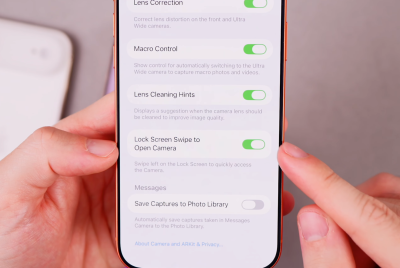New AI Can Analyse Your Selfies To Predict Cancer Survival Chances – And It's Shockingly Accurate
Researchers found that cancer patients often had a biological age significantly older than their actual age

Imagine a world where a simple selfie could offer insights into a patient's likelihood of surviving cancer. That future might be closer than we think. A groundbreaking artificial intelligence system capable of analysing selfies to predict cancer survival chances with astonishing precision has emerged.
A recent study indicates that selfies might reveal a person's cancer survival odds. Physicians are optimistic about a novel artificial intelligence instrument that assesses a patient's 'biological age' by examining a facial image. This tool could influence the selection of cancer therapy.
Beyond Chronological Years
According to a team at Mass General Brigham, a US-based non-profit research organisation, a person's biological age, as opposed to chronological age, offers a more reliable forecast of their general well-being and how long they are likely to live.
Did you know your face can reveal your biological age?
— Mass General Brigham Research (@MGBResearchNews) May 8, 2025
Researchers at @MassGenBrigham developed FaceAge, an #AI algorithm that predicts biological age and survival outcomes for patients with cancer using a single photo. Patients with cancer appeared five years older than their… pic.twitter.com/iTmbTsJMex
The findings of a study, featured in the Lancet Digital Health journal and endorsed by the independent hospital ethics review boards (IRB) at Mass General Brigham, suggest that a person's biological age, as opposed to their chronological age, offers a more reliable forecast of their general well-being and how long they are likely to live.
What Is FaceAge AI And How Does It Function
The FaceAge AI tool examines a picture of an individual's face to determine their biological age. This estimation considers various elements, such as lifestyle and genetics, measuring how old a person appears physiologically rather than their actual years lived.
FaceAge, a deep learning system to estimate biological age from face photographs to improve prognostication: a model development and validation study https://t.co/zNQ20fa7KH pic.twitter.com/8VL2EpGCur
— NOMIX (@NOMIX_AI) May 9, 2025
This process resembles what medical professionals refer to as an 'eyeball test'. In this approach, doctors form opinions about a patient's general health based on their appearance. These evaluations then play a role in deciding if someone is sufficiently robust to handle demanding cancer therapies.
The Selfie's Hidden Health Insights
Scientists mentioned they aimed to 'go beyond' the 'subjective and manual' visual assessment method. They sought to develop a 'deep learning' AI instrument to evaluate 'basic selfies.' The newfangled AI algorithm underwent training using a dataset of 59,000 images.
According to Dr Hugo Aerts, one of the study's authors, this marks the initial research demonstrating that 'we can really use AI to turn a selfie into a real biomarker source of ageing.' He noted that the tool is inexpensive, suitable for repeated use across time, and has the potential to monitor a person's biological age across 'months, years and decades.'
'The impact can be very large, because we now have a way to actually very easily monitor a patient's health status continuously, and this could help us to better predict the risk of death or complications after, say, for example, a major surgery or other treatments,' he added.
To illustrate the tool's function, the researchers demonstrated its ability to evaluate the biological age of actors Paul Rudd and Wilford Brimley using photos taken when both were 50. The AI determined Rudd's biological age to be 42.6, whereas Brimley, who passed away in 2020, was found to have a biological age of 69, according to a report by the Telegraph.
How AI Measures Biological Ageing Through Selfies
The recent study indicates that the FaceAge tool, when applied to images of 6,200 cancer patients at the beginning of their treatment, revealed that the patients' biological age was, on average, five years greater than their chronological age.
The researchers also observed a correlation between a higher biological age, as determined by the tool, and poorer survival rates among cancer patients. This was particularly evident when FaceAge indicated a biological age exceeding 85.
In their conclusion, the authors stated, 'Our results suggest that a deep learning model can estimate biological age from face photographs and thereby enhance survival prediction in patients with cancer.'
Future Of FaceAge
Dr Ray Mak, another contributor to the research, likened transforming a photo into a health indicator to 'having another vital sign data point.' He further explained that it is 'another piece of the puzzle like vital signs, lab results or medical imaging.'
However, he added, 'We want to be clear that we view AI tools like FaceAge as assistance to provide decision support and not replacements for clinician judgement.'
Further investigations into FaceAge are currently being done. These include exploring its potential application for other health conditions or illnesses and examining how factors such as cosmetic surgery or Botox treatments might influence the tool's assessments.
© Copyright IBTimes 2025. All rights reserved.






















